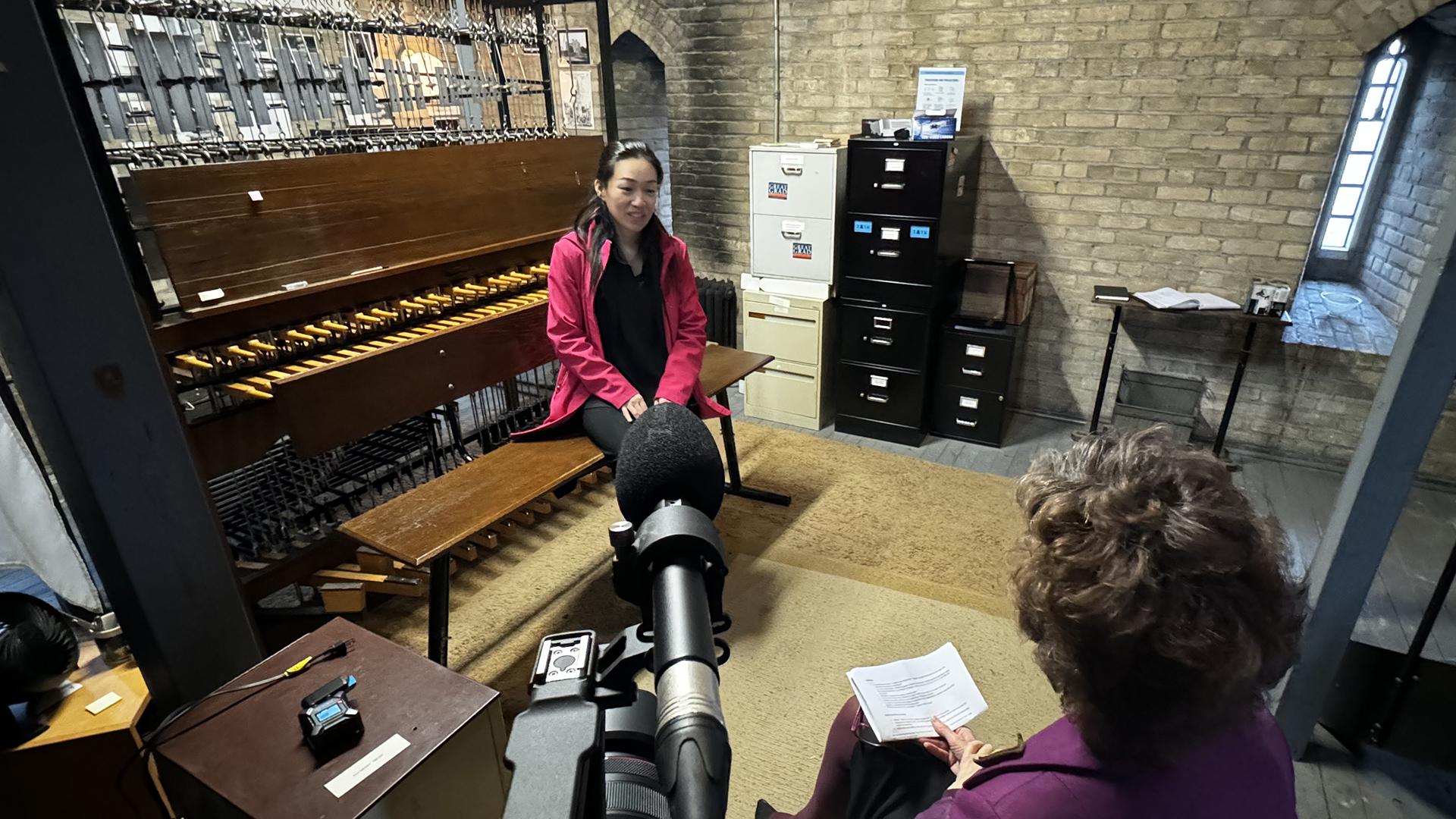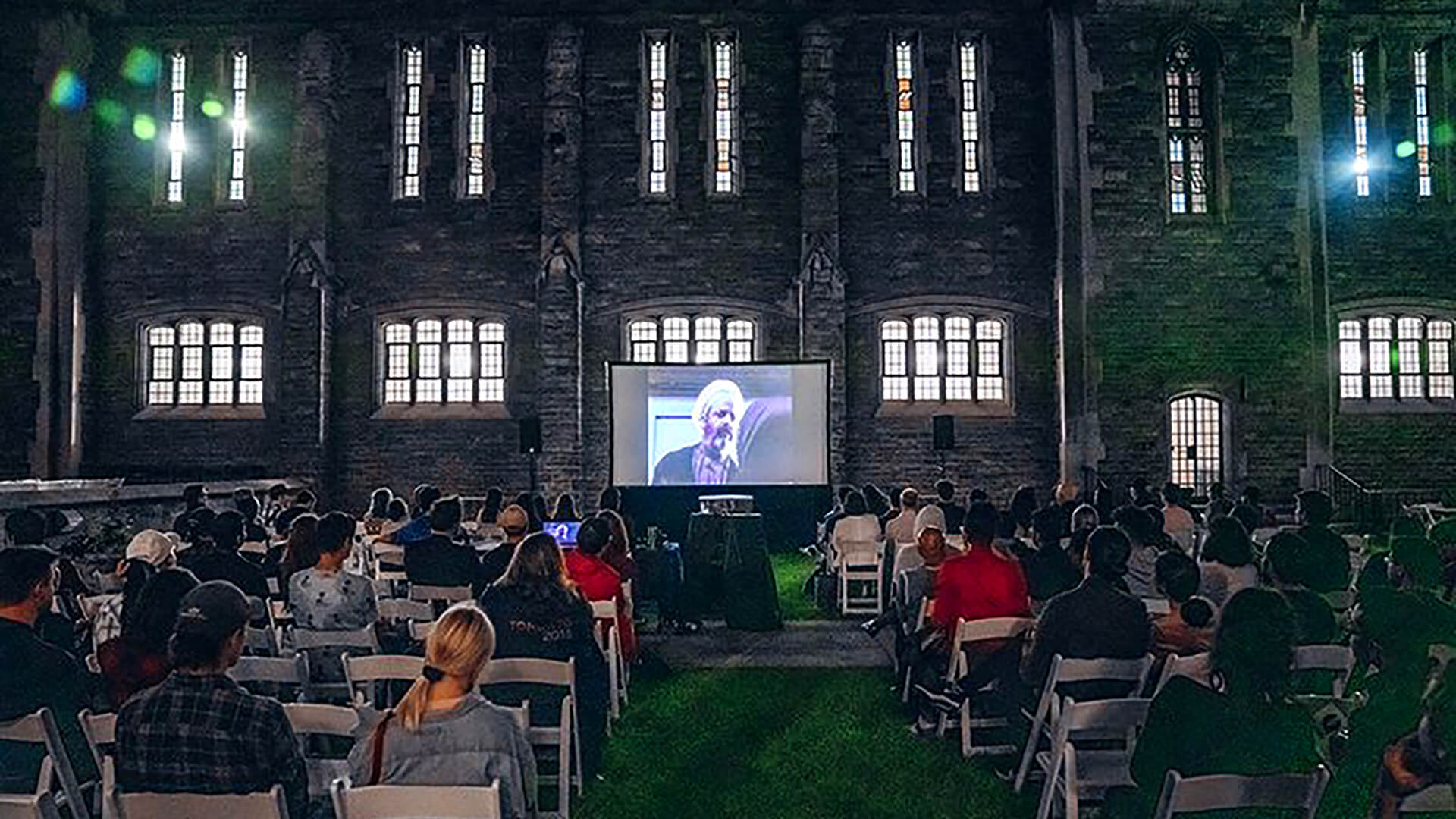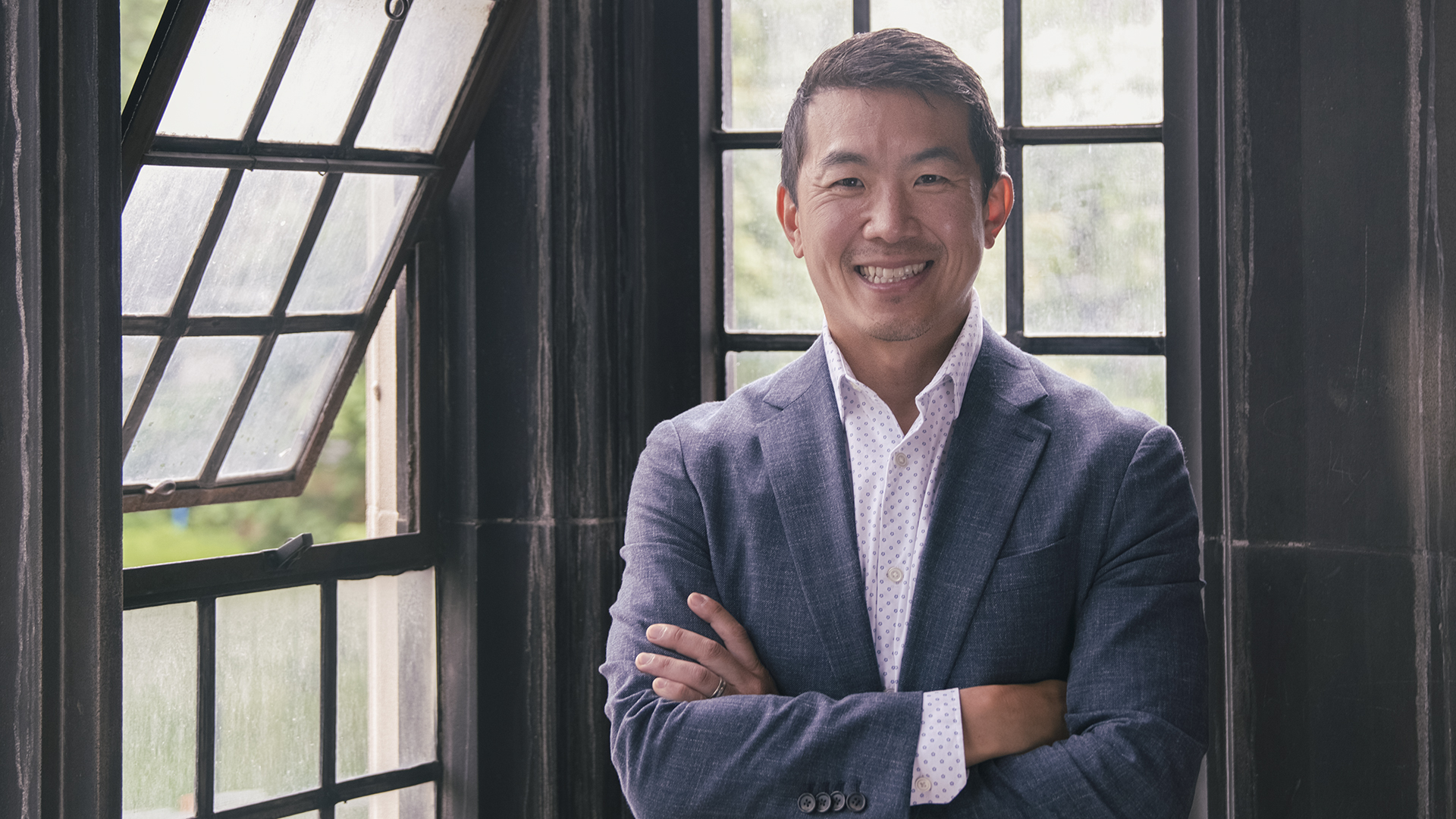Kennedy Kao won the grand prize for best student short film for "Danica’s Mom" at the Pan-Canadian Student Film Competition. The prize included a $2,000 grant awarded by Netflix and a research and creation residency in collaboration with the guest international school, Universidad de la Comunicación de México.
As a U of T student from the faculty of Arts and Science, Kenn Kao had heard about Hart House but didn’t get involved until working on this third film. He needed equipment and discovered that Hart House had its own Film Board and rented out cameras, lighting, and sound equipment to students and allowed them access to their editing suites. Kenn joined the Film Board and made Hart House his second home. We spoke with Kenn about his journey from high school comedy writer to an award-winning filmmaker.
How did you get involved with Hart House?
Just through renting equipment and using the editing suites at the film board. To this day, it's been a real Godsend because editing film takes a lot of work, and you need that space to be alone to work on your film. So, the Hart House Film Board provided that, and through being in that editing room, I met a lot of the curators at the film board, and I’ve collaborated with them on film projects.
For this award, film submissions came in from across Canada, many from students who were in four-year filmmaking programs, but you’re entirely self-taught.
At U of T, there’s no film school. To replace that, there’s this film community. These students who love films and are looking to make films on the side without the resources that a film school would provide. For us, Hart House provided those resources. The beauty of being in a community and being in that space is that you naturally want to work with each other. I’m looking to collaborate with [Hart House curators] in the future. It’s definitely been a huge staple in my filmmaking career.
Working independently from any school or institution, I feel that has given me a different route and a different insight to film. That being said, Hart House has given me that nice base-level facility to find what I need—collaborators, equipment and the editing suite. I feel proud that I’m not in a film school, and I won this award, but also, some part of me says that this route that I’ve taken has allowed me to make the film that I made and have the mindset that I have. It’s benefited me. I don’t see it as a negative at all or something that I’m lacking.

As an English Major with a double minor in Drama and East Asian Studies, your primary focus was on scriptwriting, how did you transition from writer to filmmaker?
In high school, I was writing a lot of scripts. I wanted to be a writer. I was curious about writing in general. That transitioned into wanting to be a filmmaker. You have all these scripts sitting around, and you have this urge to make them. I didn’t focus on making the scripts great. I just wanted to make them. Go out there and try it. To me, cinema had become such a big part of my life, it became a desire, and slowly and gradually I began to learn new things and met new people, some at the Hart House Film Board, and together we’ve been able to learn and grow as filmmakers, as students.
Tell us about your first film.
The very first films I made were terrible. They’re embarrassing to watch, and I can’t show them to anyone. The first one that I made was with a bunch of friends at U of T, and it was a comedy sketch of two friends walking down the street talking about the merits of karma. One believes in karma, the other one doesn’t, and the one that does believe is trying to convince the other that it exists. The one that doesn’t believe gives a homeless guy 20 bucks and instantly gets hit by a car—So, that was the gag.
That first experience making a film just energized me. I can’t say enough how important it is to make films if you’re interested in it. I met many people who, like me, are just starting out, and they have the inherent desire to be making a film.

How did Danica’s Mom come about?
When I was thinking about my next film, I was really focused on my own generation. People in their early or mid-twenties. But I couldn’t find a story that suited where I was. What I was going through at that time. This was in 2018. So, to get out of that mode, I started to look for stories about someone in another generation. My mother is Filipino, and it was an easy transition to just write about her. I’ve always been involved with Filipino culture, fascinated by it, but I’ve also been curious and angry about it in certain respects. I wanted to discover more and take my attention away from myself and young people. I guess that’s where the seed started.
Gradually the film started to evolve. We were looking for a Filipino actress, and we had such trouble finding one because there aren’t as many as other ethnicities. My mom’s friend graciously volunteered. We took aspects of her life and her experiences. I did lots of interviews with her to see if the character that I wrote had similarities, and it did. It evolved. The transition was seamless, taking her life and putting it on screen. Her experiences and thoughts and what it meant to be Filipino and a mother. That knowledge was so essential for me to direct her and construct the film. I really owe a lot of it to her. She was so great in the film, and I was very lucky because we were struggling to find someone.
What’s next for you?
Right now, I’m working on a documentary that I’ve been shooting since December. It’s about Filipino food and culture. What we’ve been doing is going to people’s kitchens and watching them cook this one dish, called adobo. Everyone in the Philippines has their own version, their take or spin on adobo. It comes from what region of the country they are from and their experiences. From watching them cook the adobo, we’ve been able to discuss what it means to be Filipino. The conversation just naturally followed. What is tying all these people together is that one dish, adobo.
I also have a short film script that I’m developing. I’ll sink my teeth into these two projects for the next year.
Kennedy Kao is a filmmaker based in Toronto, interested in bringing Asian-Canadian stories to life. His films have been screened in festivals in Toronto and Montreal. He is currently studying at the University of Toronto.
Visit: kennkao.com




